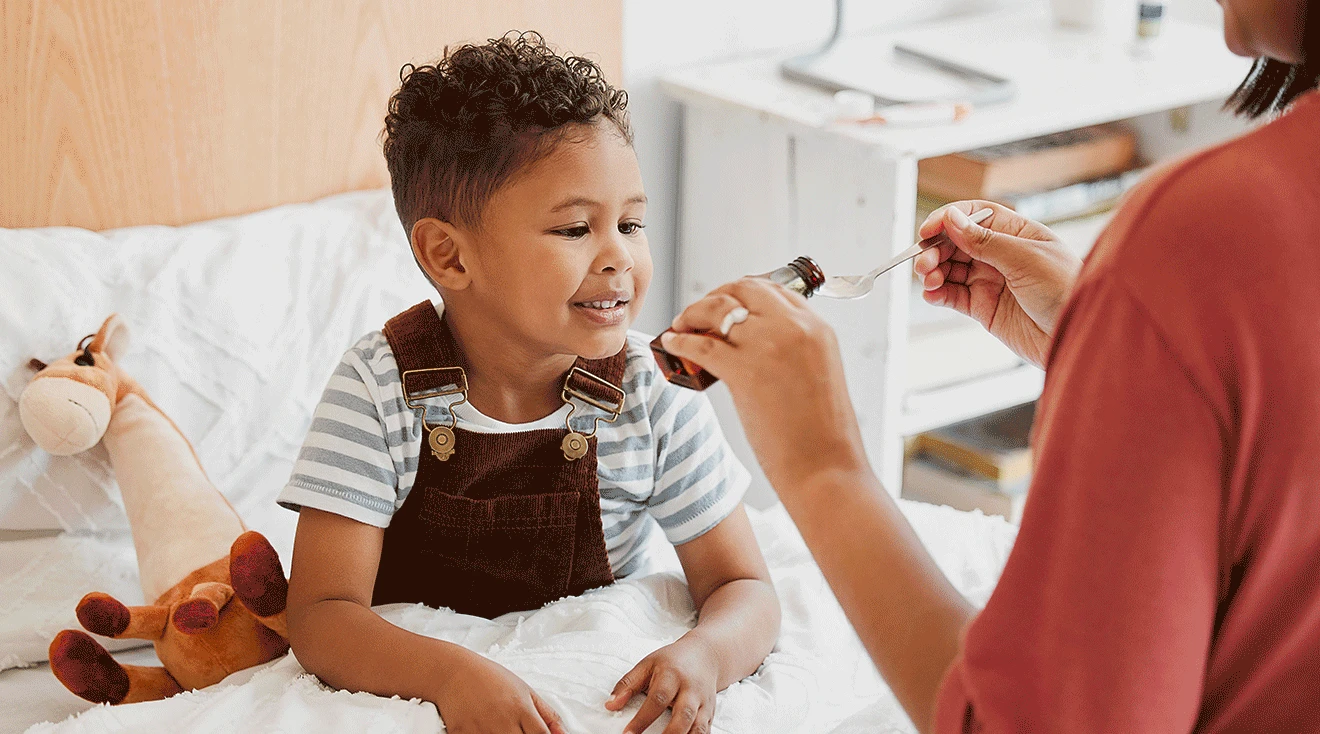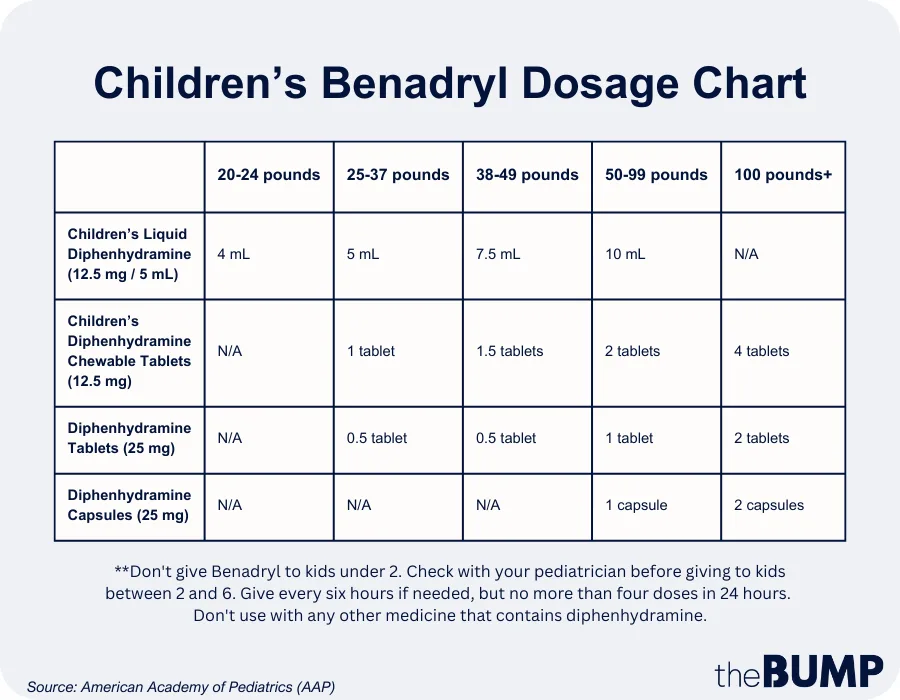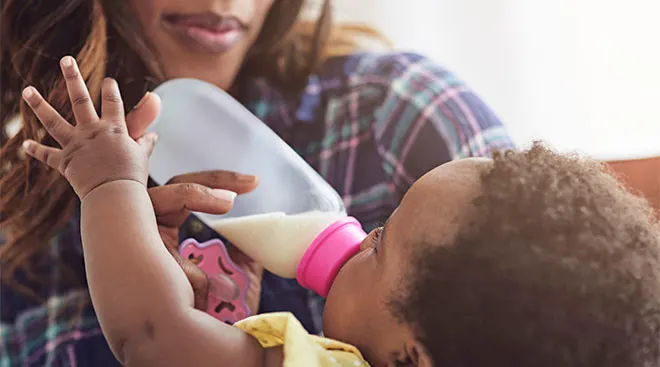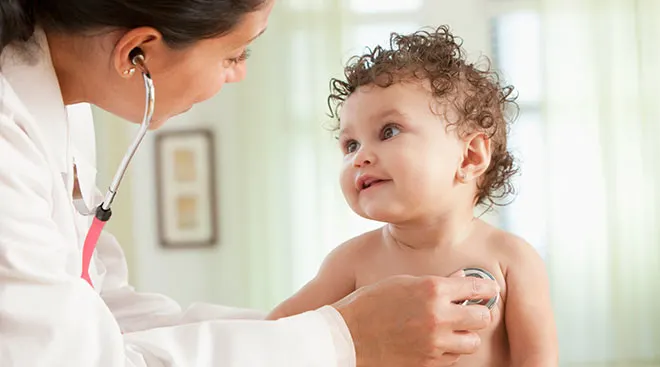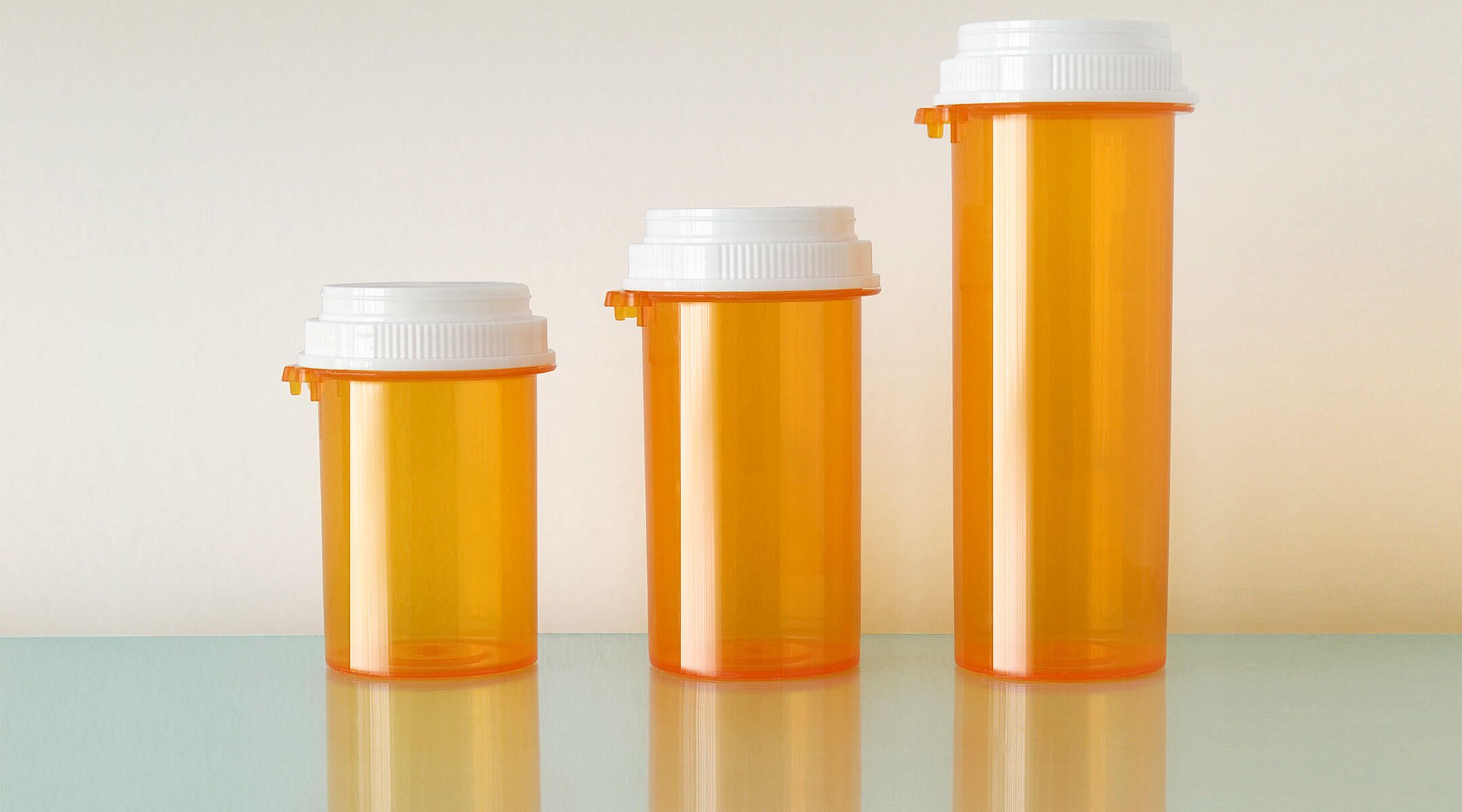When to Give Your Kid Children’s Benadryl: Dosage Chart and Tips
Children’s Benadryl is a common medicine cabinet go-to for parents. We know the medicine can help treat an allergic reaction in a pinch. But is it safe for other uses, like treating colds or helping your child sleep? (Spoiler alert: Doctors advise against it.) Moreover, how often can you give your child Benadryl—and what’s the recommended Children’s Benadryl dosage by weight? Read on to learn what you need to know about using this over-the-counter drug.
Children’s Benadryl is an over-the-counter medication containing diphenhydramine, a type of antihistamine that’s typically used to treat allergies and allergic reactions. Antihistamines block the body’s response to histamine, a natural chemical the body releases when it detects a trigger it views as a threat. This includes common but otherwise harmless substances, like certain foods, dust or pollen. In response, the body’s blood vessels dilate, leading to symptoms such as swelling, itching, hives or vomiting.
Doctors recommend Children’s Benadryl to treat food allergies and hives, itching and swelling caused by allergic reactions. “Benadryl is one of those things that’s good to have in the house if you have a child, because allergic reactions can happen when we least expect them,” says Mary Carol Burkhardt, MD, MHA, a pediatrician at Cincinnati Children’s Hospital. Although you can use diphenhydramine to treat seasonal allergies, “it’s probably not the best chronic medication,” she adds. Doctors prefer to prescribe other alternatives that won’t make kids drowsy.
Given its potential sedative effect, you may know parents who give their children Benadryl before those stressful long car rides or plane trips. Doctors warn that this strategy might backfire: While diphenhydramine makes some kids drowsy, it makes others bounce off the wall. “Because of that variable reaction, it’s just not a go-to for everyday sort of stuff,” says Burkhardt.
Using Children’s Benadryl to help kids fall asleep at night is also not a safe or effective practice, even if it may make your child drowsy. “I think that’s just a very slippery slope,” says Burkhardt. For kids who struggle to fall asleep, establishing a consistent bedtime routine is a much safer and longer-lasting fix.
Doctors also caution against using Benadryl to treat a cold—even if it might help dry out a runny nose. Your child might temporarily feel better, but the potential side effects—drowsiness, upset stomach, blurred vision—aren’t worth it. Since young children often get back-to-back colds, Burkhardt says you can assume it’s a cold if your child seems to get better for two to three days before coming down with the next bug. Allergies, on the other hand, never really improve. “They just have a mild runny nose every day,” says Burkhardt.
It’s always a good idea to check in with your doctor before giving your child any new medication, including Children’s Benadryl. “There are some experts who never recommend Benadryl anymore, and they say only go to the second-generation ones [like Claritin or Zyrtec], especially in the youngest kids,” says Jennifer Shu, MD, a pediatrician with Children’s Medical Group, P.C. in Atlanta. “These are conversations to definitely have with your pediatrician, because recommendations can change quickly.”
That said, if your child is having a true allergic reaction, Burkhardt says it’s okay to offer Children’s Benadryl before you can connect with a doctor or head to the hospital. “It’s better than the allergic reaction getting worse,” she explains. If it’s the first time you’re offering diphenhydramine, keep a close eye on your child for a couple of hours to assess their reaction.
Looking for the right Children’s Benadryl dosage by weight? Use your child’s weight in the table below to figure out how much medicine to offer, as recommended by the American Academy of Pediatrics (AAP).
Important things to remember: Don’t give your child Benadryl if they’re under 2 years old. If your child is between 2 and 6, check in with your provider before giving them Benadryl. You can give Benadryl every six hours if needed, but don’t give more than four doses in 24 hours. Don’t use Children’s Benadryl with any other medicine with diphenhydramine in it. And, keep Benadryl and other medications in a safe cabinet to prevent accidental overdoses.
Can babies and toddlers have Children’s Benadryl?
Children’s Benadryl generally isn’t advised for babies and toddlers under the age of 2. If you’re unsure about what to give your baby or toddler for allergies, ask your pediatrician for alternatives. “There are alternatives in the second-generation antihistamines that may be recommended instead,” says Shu. If baby is having an acute allergic reaction, call 911 or seek immediate medical attention.
Sleepiness is the main side effect of Children’s Benadryl, so carefully monitor your child for a couple of hours after giving it to them for the first time. “It can make you so drowsy that some children may have pauses in breathing or stop breathing,” says Shu.
Diphenhydramine can also sometimes cause other symptoms including dizziness, headache, constipation and an upset stomach. Because it has a drying effect on the body, it can also cause blurred vision and dry mouth in some kids, Burkhardt says.
If your child suffers from chronic seasonal allergies, your doctor will likely recommend a “second-generation” antihistamine first, such as Zyrtec (cetirizine), Claritin (loratadine) or Allegra (fexofenadine). “Benadryl is a first-generation antihistamine that’s a little bit older,” says Shu. “The second-generation ones tend to cause less drowsiness in young children.” Shu adds that they tend to last longer too.
It might take some trial and error before you figure out the right antihistamine for your child, and your provider can help answer any questions in the meantime. “Some kids do just respond to one better than another one,” says Burkhardt.
Children’s Benadryl is a handy medication to stock in case your child has a sudden allergic reaction. Make sure to follow the age restrictions and Children’s Benadryl dosage chart—and check in with your provider if you have any questions.
Please note: The Bump and the materials and information it contains are not intended to, and do not constitute, medical or other health advice or diagnosis and should not be used as such. You should always consult with a qualified physician or health professional about your specific circumstances.
Plus, more from The Bump:
Mary Carol Burkhardt, MD, MHA, is a pediatrician at Cincinnati Children’s Hospital. She earned her medical degree from the University of Cincinnati College of Medicine.
Jennifer Shu, MD, FAAP, is a pediatrician with Children’s Medical Group, P.C. in Atlanta and co-author of Heading Home with Your Newborn: From Birth to Reality. She earned her medical degree at the Medical College of Virginia at Virginia Commonwealth University.
StatPearls, Diphenhydramine, July 2023
Nemours KidsHealth, Definition: Histamine, October 2021
HealthyChildren (American Academy of Pediatrics), Diphenhydramine Dosing Table
Benadryl.com, Benadryl (Diphenhydramine HCI) Dosing Guide for Adults & Children, 2023
Learn how we ensure the accuracy of our content through our editorial and medical review process.
Navigate forward to interact with the calendar and select a date. Press the question mark key to get the keyboard shortcuts for changing dates.
Advertisement
Advertisement
Advertisement
Advertisement
































